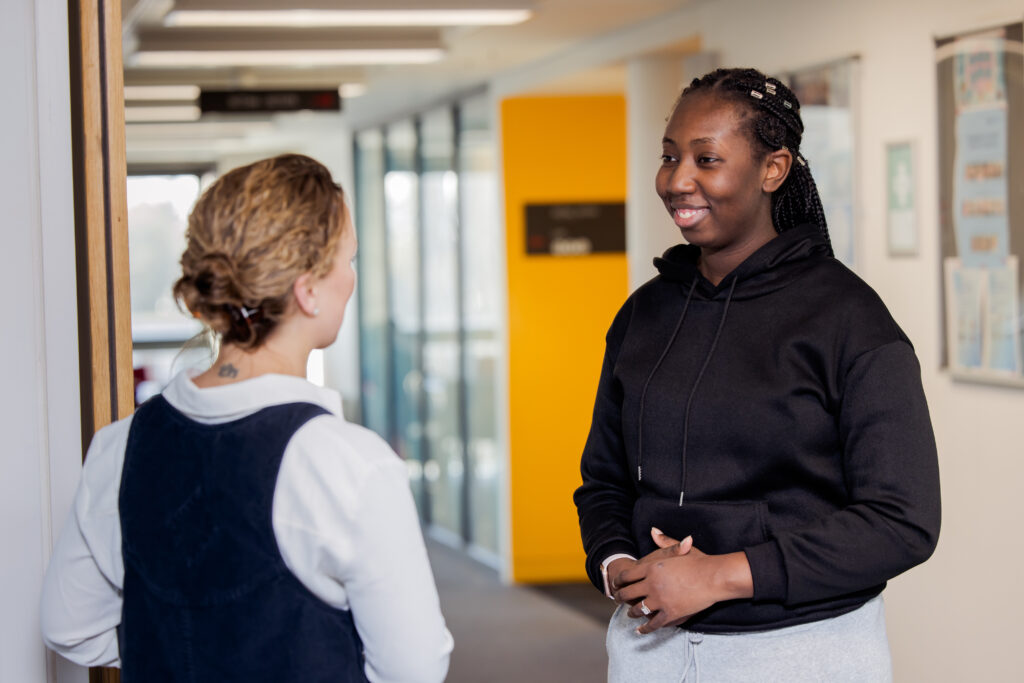Over the past few years, there has been a worrying drop in the number of people applying to midwifery courses in the UK. In fact, applicants for 2024 are down 10% from last year and is the lowest number of applicants we’ve seen in the last six years. Alongside this, this week we received figures that show the number of UK-educated midwives joining the NMC register has fallen by 12.5%. RCM members in higher education won’t find this surprising, as they have told us this year that they are struggling to fill places and then retain students on courses. We cannot expect international recruitment of midwives to fill the workforce gaps alone so let’s explore how we can tackle challenges head on.
The cost of education is big hurdle of aspiring midwives. Our recent State of UK Midwifery Student Finance report highlights three-quarters of midwifery students in England graduating with debts exceeding £40,000. This financial strain can make potential applicants think twice.
To make midwifery education more accessible, we need to ramp up financial support. Forgivable maintenance loans, increase financial support, prompt reimbursement of placement expenses and preserved benefits entitlement are all steps that that could help ease the burden. The recent announcement of a 3.1% tuition fees for students in England may not be felt initially by students during study but it certainly won’t reduce the debt they carry into their working lives. And to add insult to injury, some student midwives are qualifying and struggling to find employment. Financial support needs to be assessed if we are going to open the door to a wider pool of future midwives.
There’s no doubt midwifery can be tough. The challenges of long hours, high stress, and a lack of resources, combined with the risk of burnout, may be deterring potential midwives. We’re continuing to push employers and politicians for better support systems, increased staffing levels with the right skill mix, and more flexible working hours. By reducing the strain on midwives, we can make the profession more sustainable and appealing. If midwives feel supported and value, we’re more likely to keep experienced professionals, attract new recruits and ultimately improve the quality of care.
There’s a well-used phrase: you’ve got to see it to be it. This is as true in midwifery as anywhere, but we are still struggling with underrepresentation, which may be limiting applications from people of different backgrounds. We’re determined to play our part to address this, particularly through our decolonisation of the curriculum and neurodivergence acceptance toolkits. Targeted outreach, scholarships, and mentoring programmes can make a real difference in encouraging individuals from all backgrounds to consider a career in midwifery.
Public perception often comes into play when choosing a career, and that’s almost certainly true of midwifery. Recent media reports and maternity care reviews have not always painted the best picture of being a midwife. On top of that, many people don’t fully understand what a midwife does or the variety of roles the career offers.
The RCM is using all of its channels and platforms to change this and shine a light on the rewarding and diverse nature of midwifery. Just as Gill Walton said at our conference earlier this year, we have started a revolution to showcase the positives and highlight just how vital midwives are to healthcare to shift the narrative.
Midwifery education has evolved significantly over recent years, with updated NMC standards and the impact of the pandemic driving changes. To attract and retain students, we need to continue modernising. That means ensuring enough clinical placements, offering flexible study options and integrating tools, such as simulation into courses. To do that, as we set out in our 2023 State of Midwifery Education report, universities must have the staffing and resources to implement them. By investing in both academic and clinical education, we can ensure that future midwives are well-prepared to meet the challenges of today’s healthcare system.
Although there’s been overall growth in the student midwife population over the past decade, we cannot be complacent, especially with the number of UK-educated midwives joining the register falling significantly. By addressing these key issues, we can secure a sustainable future for midwifery, ensuring that both midwives and the families they care for receive the support they need.


